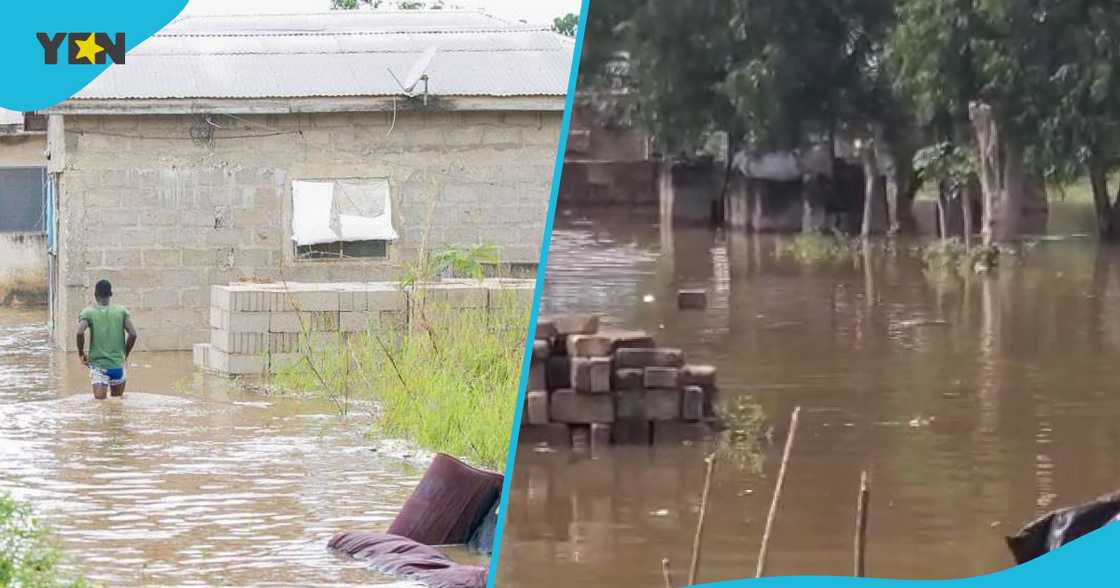Akosombo Dam Disaster: Farmers Affected By Spillage to Benefit From $40 Million World Bank Programme
- The Ghana government has announced a programme to support farmers whose farms have been affected by the Akosombo Dam spillage
- Agric minister Bryan Acheampong announced the $40 million resilience programme at an event recently
- He said the fund is a restructured World Bank programme with the aim of helping those whose farms were affected
PAY ATTENTION: Be the first to follow YEN.com.gh on Threads! Click here!
The Minister of Food and Agriculture, Dr. Bryan Acheampong, has announced a $40 million food systems resilience programme to aid farmers impacted by the Akosombo and Kpong dam spillage.
The government has restructured a World Bank-funded programme with the aim of helping those whose farms were affected by the necessary actions taken by the Volta River Authority (VRA) along the Volta and Eastern stretch of the Akosombo Dam's path.
The announcement about the programme was made during a presidential conference on youth in agriculture in Accra on October 18, 2023.

Read also
Akosombo-Kpong dams spillage: Mum with farm under water recalls how floods took over 3-bedroom house

Source: Facebook
President Nana Akufo-Addo had previously disclosed that the Ministry of Food and Agriculture (MoFA) would establish a long-term relief programme for flood-affected farmers in the Volta Region.
He recognised that numerous farms along the Volta River had been destroyed by the floods, necessitating the assistance from the government to rebuild their livelihoods.
In the interim, an inter-ministerial committee, composed of the National Disaster Management Organization, the VRA, and other agencies, has been providing relief items as a short-term measure for flood victims.
Dr. Acheampong shifted the focus to agriculture and the country's youth, stating that the Planting for Food and Jobs phase 2 (PFJ 2.0) programme would be a key catalyst for creating sustainable jobs and financial self-sufficiency, making it one of the most youth-oriented interventions in the nation's history.

Read also
Researcher says persons affected by Akosombo Dam spillage unlikely to consider resettlement
He further explained that every aspect of the programme was designed to address the challenges and barriers preventing young people from engaging in agriculture as a viable business and livelihood opportunity.
The input credit system removed a major entry barrier by allowing youth to access essential inputs for crop production without the need for upfront cash or collateral.
The provision of comprehensive mechanization services, including land preparation, planting, seeding, and harvesting, also aimed to reduce the drudgery of farming and boost productivity.
Researcher believes displaced persons won't consider resettlement
In a separate story, Dr Benjamin Ofori, a researcher, has told YEN.com.gh that Ghana needs to curb housing developments in flood-prone areas.
Dr Ofori noted that victims of the Akosombo spillage disaster are unlikely to want to leave the flood-prone areas they live.
The researcher urged the government to learn from the recent devastation caused by the flooding from the dam spillage.
New feature: Сheck out news that is picked for YOU ➡️ click on “Recommended for you” and enjoy!
Source: YEN.com.gh

